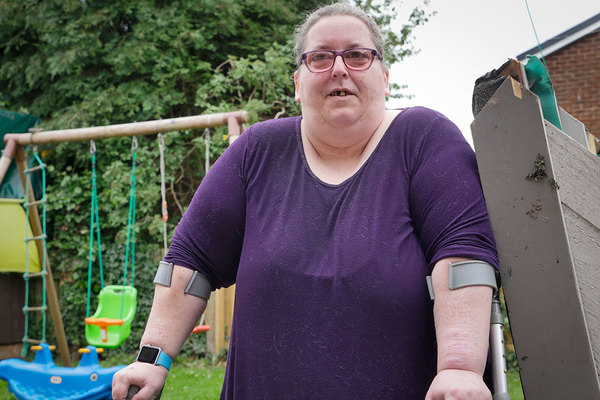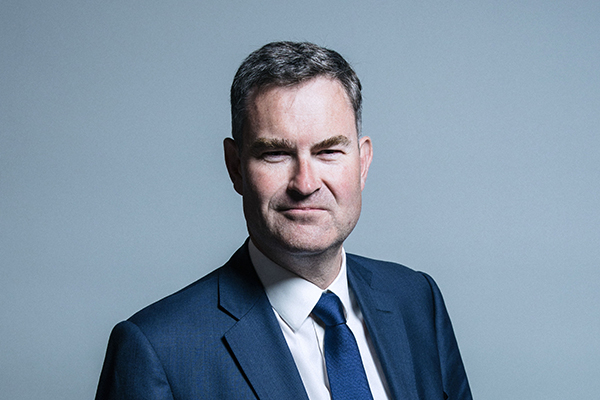You are viewing 1 of your 1 free articles
Ministers have their work cut out to make Universal Credit a success
Pausing the roll-out of the government’s flawed welfare system and getting the basics right is better than exposing people to risks, says Kate Davies
A £1.5bn funding boost for Universal Credit can only be a good thing, but we shouldn’t fall into the trap of thinking that all will now be well. It won’t.
Scrapping the seven waiting days, changing advance payments and paying housing benefit for the first two weeks will help those claiming for the first time, but only if they claim after these changes take effect.
The waiting days will only be abolished in February and the extra housing benefit payments will only be paid to those claiming from April next year.
Increasing the amount you can receive as an advance payment may help, but we already know that people are reluctant to take these out because the rate of repayments is too high.
Notting Hill Housing has more than 1,000 residents claiming Universal Credit and we’ve seen first-hand the impact its problems and system errors can have. It’s true that for some, Universal Credit works well.
However, for many it does not. Navigating this new and imperfect benefits system takes time and energy from both our residents and staff.
“We’ve seen first-hand the impact its problems and system errors can have.”
The changes announced in the Autumn Budget won’t help any of our residents currently claiming or struggling with Universal Credit.
Nor do they address the multitude of problems that still exist within this flawed system, many of which are built into its design.
The monthly payment is a fundamental part of Universal Credit.
The argument being that 75% of jobs are paid a monthly salary and that Universal Credit should mirror the world of work.
But scratch the surface of this and you see that a monthly salary is not the reality for many who are working and on a low income.
Citizens Advice has reported that more than half of those who were working before claiming Universal Credit were not paid monthly. If you’re on Universal Credit, getting paid wages weekly or fortnightly will make your payments incredibly messy.
Payments will vary, depending on the number of weeks in a month, potentially even reducing to zero. This fluctuation and uncertainty can make budgeting a nightmare.
“A monthly salary is not the reality for many who are working.”
The monthly assessment is also an integral part of the much-maligned wait for the first payment.
We know that this initial wait is too long and causes hardship but it’s also exacerbated by incredibly strict rules on backdating.
Woe betide you if you delay making a claim – because you don’t know about Universal Credit, have been given the wrong information, or can’t get to a computer – you won’t get any money back for those missed days.
Universal Credit has not been immune to benefit cuts and is now less generous than initially envisaged; the ongoing benefit freeze continues to reduce the real value of payments, cuts to work allowances have undermined one of its key principles of making work pay and the two-child limit will reduce payments, affecting more and more families over time.
Estimates suggest that once Universal Credit is fully rolled out the two-child limit will mean that an additional 200,000 children are living in poverty.
Four years on from when it was introduced, this hugely complicated system is still beset by practical problems.
Very often, Universal Credit can’t get the very basics right – to pay people the right amount and pay it on time.
The secretary of state recently told parliament that 80% of new claims are paid in full and on time.
“Our staff are spending hours and hours helping residents, trying to resolve sometimes baffling problems.”
That means that one in five claims are not, which creates additional hardship and misery for those who have already been waiting six weeks for their money.
Sometimes payments will just stop. Residents will ring up to find out why their payment hasn’t been made, only to be told that there’s no reason why it hasn’t gone through, that it’s stuck in the system and has to be manually released.
Our staff are spending hours and hours helping residents, trying to resolve these sometimes baffling problems.
As we approach the end of 2017, it seems odd to remember that the original plan was for Universal Credit to be fully rolled out by now, with eight million households claiming it.
We are now looking at another five years to get to that stage.
Another pause to the roll-out to allow time to address these issues and get the basics right would be better than exposing more people to the risks of claiming under the flawed system.
The measures announced in the Autumn Budget are a start, but the government has a lot more work to do if they want to turn Universal Credit into a success.
Kate Davies, chief executive, Notting Hill Housing




